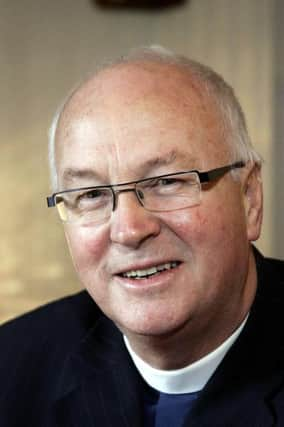THOUGHT FOR THE WEEK: The evidence of our words


He looks for hidden clues in any communication, whether written or typed, by email or by text.
In a recent book he recounted his part in a number of trials. For instance, in a trial in the United States in 1996, he analysed a ‘ransom note’ which had been sent when a child had been kidnapped.
Advertisement
Hide AdAdvertisement
Hide AdThe writer of the note had wanted to give the impression that he was a foreigner, by making spelling errors in such common words as ‘business’( written as ‘bussiness’); yet more complex words, such as ‘deviation’ were spelled correctly. His suggestion helped to refocus the criminal investigation.
In another case, where a girl had gone missing, the abductor used the girl’s mobile phone, to send text messages suggesting the girl was still alive. In the text, the criminal had made reference to ‘a programme I watch all the time’.
Olsson sensed the message was an attempt to confuse the police. Having studied the missing girl’s text messages, he suggested she rarely exchanged information through them (that is a mainly male characteristic). Besides, girls who see each other frequently do not need to tell one another about their favourite programme; they know already.
Olsson’s insights are not new. Over a century ago, a great Irish lawyer, Sir Charles Russell from Killowen outside Newry, used similar methods.
Advertisement
Hide AdAdvertisement
Hide AdLetters had been published in ‘The Times’, implicating the Parliamentarian, Charles Stewart Parnell, in the gruesome ‘Phoenix Park murders’. The letters were forgeries, by a man named Piggott, who had forwarded them to ‘The Times’ newspaper.
Russell noticed a faulty spelling of the word ‘hesitancy’ in the published letters. He therefore asked Piggott to write some random words on a piece of paper, and finally, as though an afterthought, to write the word, ‘hesitancy’. When the paper was handed over, Russell knew he had his man.
The knowledge that our speech gives us away is as old as time. In the biblical Book of Judges, when ‘every man did what was write in his own eyes’, the men of Gilead had an unseemly quarrel with the tribe of Ephraim.
The Gileadites held the fords across the Jordan river, and when men from Ephraim attempted to cross, they were asked to say the word ‘Shibboleth.’ The Ephraimites suffered from a vocal condition which meant they could not pronounce the word correctly, and instead said ‘Sibboleth’. Forty-two thousand perished at the Jordan in those savage times.(Judges 12;6)
Advertisement
Hide AdAdvertisement
Hide AdWhen Peter, under pressure from a girl, tried to deny that he knew Jesus, those nearby were quick to observe that he, like Jesus, was from Galilee. ‘Surely you are one of them, ‘they said, ‘for you are a Galilean’(Mark 14; 70).
Does your speech, and mine, show that we are followers of Jesus?